Mark
Mark 12:13−44
God’s absolute ownership demands the entirety of the disciple in utmost love for God and for neighbor.
“The things of Caesar, give back to Caesar, and the things of God, to God.”
Mark 12:2–3
Mark 12:1–44 focuses on the theme of loyalty to God and is carefully structured. Two illustrations bookend this central motif: a negative illustration (the tenants in the vineyard parable, 12:1–12), and a positive one (the widow in the Temple, 12:38–44). In both these
Mark 11:27−12:12
Fruit-bearing by disciples is their responsibility of stewardship towards God.
And he sent a slave to the tenant farmers at the right time [of harvest]
in order to receive of the fruits of the vineyard from the tenant farmers.
And taking him, they beat and sent [him back] empty-handed.
Mark 12:2–3
Mark 11:28 is the first instance of the appearance together of all three factions of the Sanhedrin—chief priests, scribes, and elders—denoting a critical juncture in the
Mark 11:1−25
The community of disciples is characterized by prayer founded on faith and forgiveness.
“Have faith in God. …
All things for which you pray and ask, believe that you receive,
and it will be [so] for you.
And when you stand praying,
if you have anything against anyone, forgive.”
Mark 11:22, 24–25
In this final Act of Mark’s Gospel (11:1—16:8), Jesus enters Jerusalem to die. What is striking in 11:1–11 are the similarities with the elements of a triumphal
Mark 10:32–52
The true sign of greatness of disciples is their acceptance of Jesus’ mission to follow his model of suffering and service.
“For even the Son of Man did not come to be served but to serve …
Mark 9:35
This section has the most detailed Passion Prediction in Mark (10:33–34), which is followed by a depiction of the complete incomprehension on the part of Jesus’ disciples about his mission.
James and John already had had a fairly higher standing around Jesus than the
Mark 10:13–31
Confident of the abundance of their rewards, disciples give freely of their possessions, humbly depending upon God.
“Sell all you have and give to the poor, and you will have treasure in heaven; and come, follow Me.”
Mark 9:35
This section opens with Jesus’ embrace of children (10:13–16). The characteristic of children that enables them to accept everything as a gift is what the disciple should demonstrate: receiving the kingdom with humility acknowledging total
Mark 10:1–12
Followers of Jesus, in obedience to Scripture, remain united to their spouses for life, in the journey of discipleship.
“And the two shall become one flesh.”
Mark 9:35
In Mark 3:31–35 and 10:28–30, Jesus had declared that a new family was being formed, that related to him, that followed him, and that represented him. Questions would have arisen then regarding the implications of this new unit of relationship for the already-existing unit of the traditional family:
Mark 9:14–50
The humble disciple, faithfully dependent on God’s power in prayer, serves the last and least.
“If anyone wishes to be first, he shall be last of all and servant of all.”
Mark 9:35
The prominent theme in this pericope, that commences with the healing of a demon-possessed boy, is humility.
Reinforcing the intensity of the demonic struggle, the affliction of the boy, with its etiology and its symptoms, gets extended coverage in the account: 9:17–18, 20, 22, 26. As 9:19

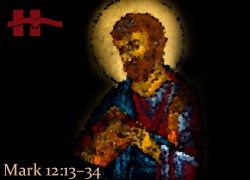
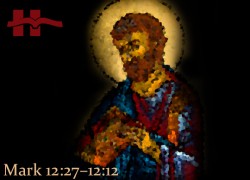
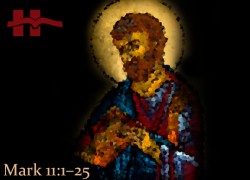
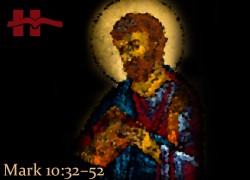
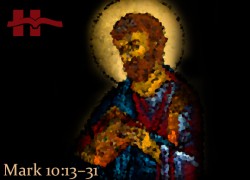
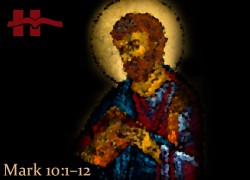
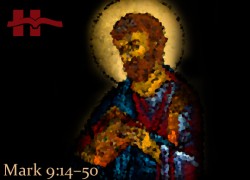











 Abe Kuruvilla is the Carl E. Bates Professor of Christian Preaching at The Southern Baptist Theological Seminary (Louisville, KY), and a dermatologist in private practice. His passion is to explore, explain, and exemplify preaching.
Abe Kuruvilla is the Carl E. Bates Professor of Christian Preaching at The Southern Baptist Theological Seminary (Louisville, KY), and a dermatologist in private practice. His passion is to explore, explain, and exemplify preaching.